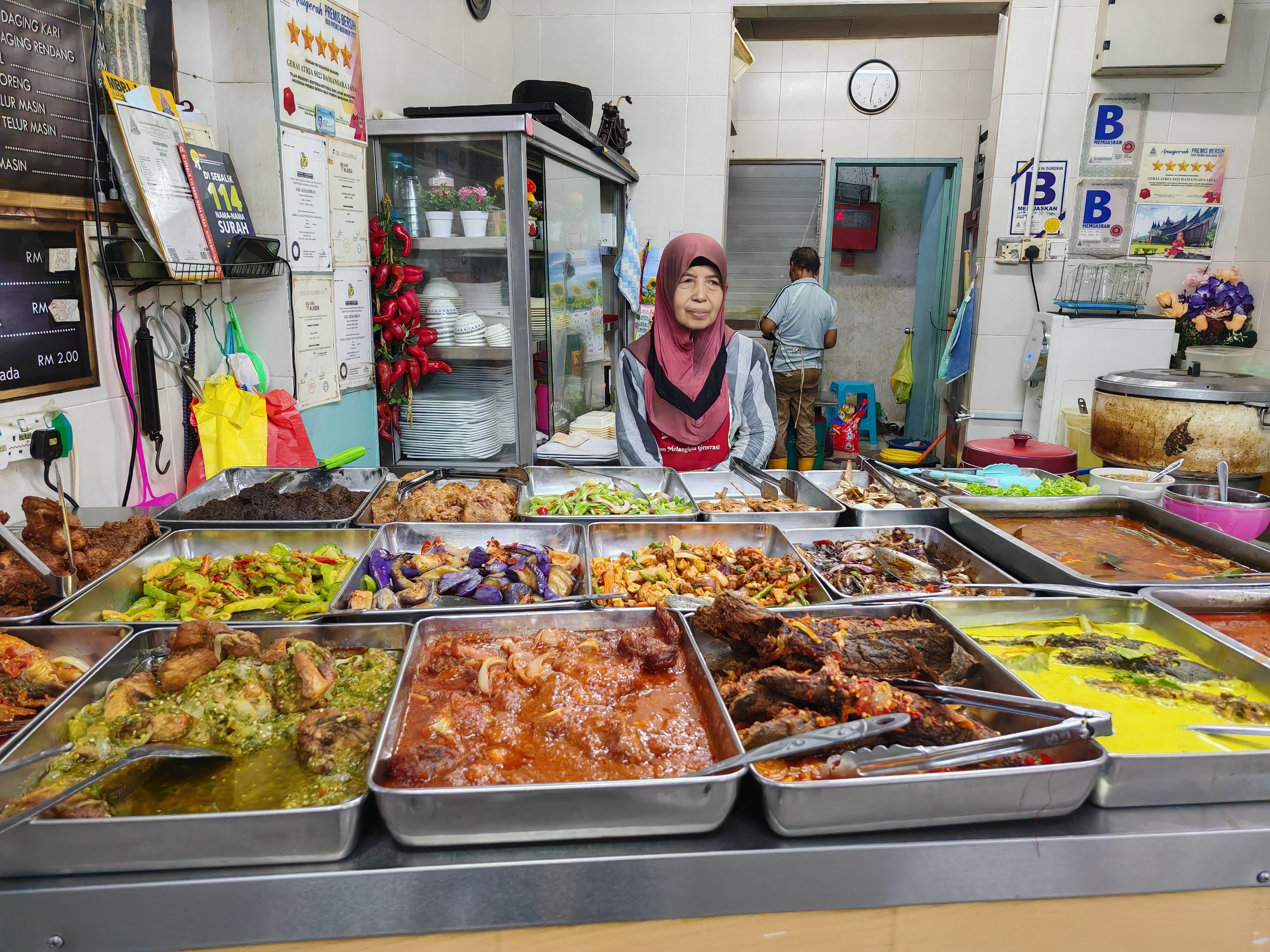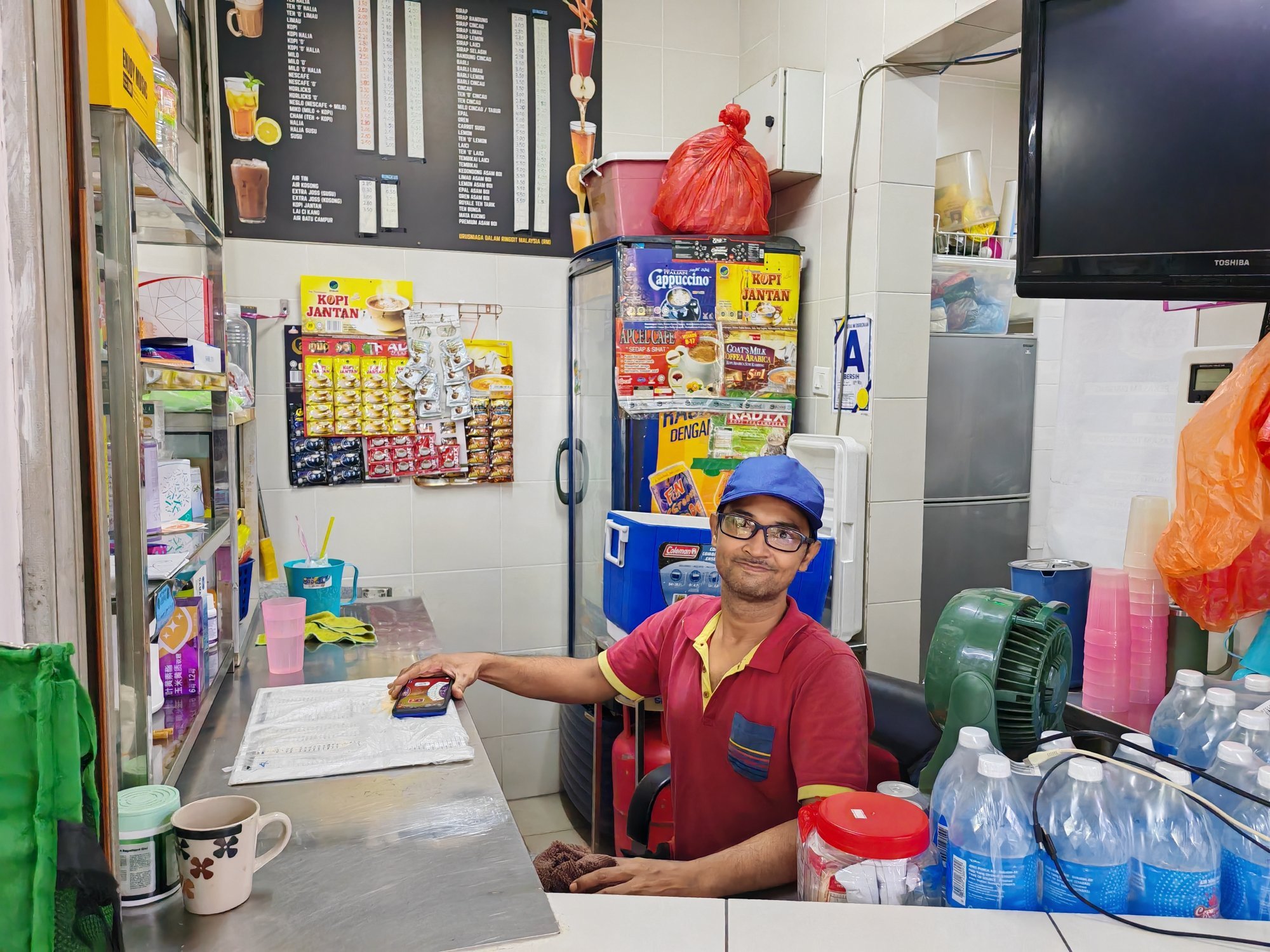Nasi lemak, beef rendang prices soar as food inflation bites Malaysians
New data shows prices for popular meals outpacing official inflation and wage growth

Drinks seller Zaki Che Zuber says he has raised prices for coffee and tea again this year, while food trader Murni Adlis has increased the cost of her beef rendang – signs that Malaysians are paying more for everyday meals than official inflation data would suggest.
Malaysia’s headline inflation rate stood at 1.8 per cent in 2024, according to the Department of Statistics. But new data from the same agency show that the price of many essential foods has risen far more sharply.
The department’s latest analysis of annual consumer prices, released on Tuesday, found that the cost of a basic nasi lemak breakfast rose 5 per cent on average last year to 3.68 ringgit (US$0.85).
Over the past decade, the cost of the dish – made with coconut rice, spicy sambal, fried anchovies, peanuts and a boiled egg – has nearly doubled.
Some ingredients have seen even steeper increases. The price of cockles, for example, has jumped by 400 per cent, underscoring the widening gap between official inflation figures and the lived reality of many Malaysians.

Zaki, 40, who runs a drinks stall in a suburb on the outskirts of capital Kuala Lumpur, said costs have climbed for his suppliers, forcing him to pass on the difference to customers.
“When the price of raw materials go up, we don’t have much choice but to also raise our prices,” Zaki told This Week in Asia.
Zaki said he had to raise prices last year after their suppliers did the same following cuts to diesel subsidies.
“This year we had to raise prices again after the minimum wage went up,” he added, pointing to the 200 ringgit rise to the monthly wage in February to 1,700 ringgit.
“Last year, we sold our iced tea for 1.80 ringgit, now we have to sell it at 2 ringgit,” he said.
The new data released by the Department of Statistics shows the cost of eating in Malaysia has climbed steeply since 2011.
A plate of plain white rice cost 1.98 ringgit in 2024 – nearly 75 per cent more than the 1.14 ringgit it cost 13 years earlier.
Cockles, commonly featured in sambal or stir-fried in char koay teow, saw the sharpest increase over the period, rising from 3.04 ringgit to 15.21 ringgit per kilogram.
Food inflation far outstrips wage growth in Malaysia, which the central bank said in March had slowed to 2.9 per cent from 3.8 per cent a year earlier.
That is leaving food sellers with an unenviable dilemma – pass the costs on, or lose profits.
Nasi padang stall operator Murni, 66, said the price of raw beef cubes that she uses for her slow-braised beef rendang recently shot up to 400 ringgit a box from 280 ringgit just a few months ago.
“We had to raise the price of our beef rendang by one ringgit to seven ringgit a serving,” Murni said while handing out plates of rice to customers at her lunch buffet spread.
“We try not to raise our prices because if it keeps going up people will not come to eat our food. But I don’t know if we can stick to our prices if costs keep increasing. Nobody wants to operate at a loss.”